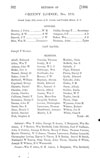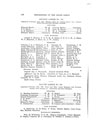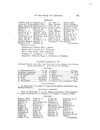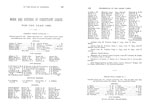Henry Clay Warmoth
1868-1872

|
Henry Warmoth was born and raised in a log cabin in McLeansboro, Illinois, where he received a limited, but thorough education in village schools and by working as a typesetter for a local printing office. By reading his father's law books, Warmoth studied law and when he was eighteen he was admitted to the Missouri bar and practiced law until resigning to serve in the Union army. After becoming a lieutenant colonel, he was dishonorably discharged for circulating reports with exaggerated Union losses. However, after making a personal appeal to President Lincoln, he was restored to his office. In 1864, Warmoth was appointed to serve as a judge of the provost court of the then-occupied New Orleans. When his military service ended, he returned to private practice in New Orleans. While practicing law, Warmoth was initiated an Entered Apprentice in the Orient Lodge No. 173 in New Orleans in October 1865. He also gained an interest in politics and suffrage for African Americans. Warmoth won the Republican nomination for governor at the age of 26, and won the election with Oscar J. Dunn, a former slave, as his running mate. His administration was plagued with scandal, due in part to corrupt administration of elections and speculation in state bonds. In the last year of his term, Warmoth was impeached for his involvement in election fraud during the 1872 presidential election. He was suspended from office for the last month of the term, but never tried. Despite these controversial matters, Warmoth also sought to promote public education and improve roads, levees, and public buildings which were in poor condition following the Civil War. When his term was over, Warmoth worked as a sugar planter on a plantation near New Orleans. He made a name for himself in the sugar industry, traveling to Europe to study the sugar industry, and heading a campaign for higher tariffs to protect the state's sugar industry. Warmoth sold his plantation when the importation of sugar began to threaten his ability to sell sugar at a profit and retired in New Orleans. Warmoth passed to the degree of Fellowcraft nearly 18 years after being initiated, and was raised to Master Mason in 1884. He was also listed as a member of Perfect Union Lodge No. 1 in 1887. President Harrison appointed Warmoth Collector of Customs for New Orleans in 1890, a position he held until he was removed by Grover Cleveland. When he was 88 years old, he published a memoir called War Politics, and Reconstruction, recounting his controversial career. Warmoth died in New Orleans in 1931. |





